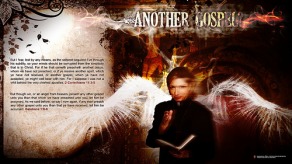It’s easy to make a quick judgment when we suffer because of a decision made by our boss or unkind word. We respond with righteous indignation or wrong analysis of the situation. How do we determine our proper response? Studies have shown that people are getting much of their input from various media, including the internet and friends. How do we discern who’s telling the truth? Do we have all the information? How can we be grounded to make the right decision and live life without being tossed up and down like a ping pong ball? With the proliferation of additional media channels and the internet, these issues become more complicated.
Let’s look at one category of life, marriage, for example. An article states 10 marriage myths that seem plausible on the surface. I will mention three of these myths that research has shown to be lies:
1. Cohabitation is just like marriage, but without “the piece of paper.”
2. Married people have less satisfying sex lives, and less sex, than single people.
3. Marrying puts a woman at a greater risk of domestic violence than her single counterpart.
Christ addresses human judgments in the Sermon On The Mount. If we don’t resolve personal issues first, we hurt ourselves by reaping what we sow. Judging or giving our opinion about any matter of life, including marriage, comes without full knowledge. Without walking a mile in someone’s shoes, we lack perspective. In addition, our human judgments often don’t correspond with life’s realities (Matt. 7:1-2).
First, we must deal with our sin and blind-spots that hinder our vision before we can help the other person. Otherwise, we become counterfeits. Integrity demands we take the log out of our own eye before removing the speck out of others’ eyes (Matt. 7:3-5). At the same time, we make moral distinctions whether to correct a person. Some people are “pigs” because of closed hearts and not being teachable. They won’t listen to our correction (Matt. 7:6).
To protect us from wrong judgments, we must take our relationship with God seriously. The rest of Matthew 7 explains how to take the log out of our eyes. As we pray, seek and knock in ever increasing intensity, God reveals knowledge, discernment, insight and multiple perspectives more generously than a human parent (Matt. 7:7-10).
What’s the incentive to pray? Our reward is God Himself, the most useful and profitable gift imaginable. Our course, He will meet our earthly needs (Matt. 6:33; 7:11). God who mediates His Word through the Bible equips us to know the truth about any situation (law) and the ability to apply it (prophets) (Matt. 7:12).
Once we put on the armor of prayer and God’s word, Christ commands us to enter the narrow way by abiding and standing upon each word in the Bible. Not intellectual knowledge but asking God for wisdom and guidance as we saw in the earlier verses. Our human judgments are the broad way to destruction similar to keeping the log in our eyes (Matt. 7:13-14). The log prevents us from discerning truth and error. Because of increased media through the internet, we face more opportunities for false teaching that seem plausible, but not life-giving (Matt. 7:15).
We must ask the following questions:
1. Does the teaching produce death and destruction or life and fruitfulness?
2. How do we discern truth from error?
It demands Spirit-inspired wisdom from God’s word through prayer and fruit inspection. In this way, we discern what’s right and what’s wrong; what lines up with God’s word or follows man’s way (Matt. 7:16-20). We must listen to what God tells us after prayer (ask, seek and knock) and meditation on His word. One other key question to ask: Does the fruit in the teachers’ lives and/or ministries match the Beatitudes (Matt. 5:3-12)?
Just because they quack like a duck, doesn’t mean they are a duck. In other words, they could be preaching God’s word and performing miracles in their ministries, but still be a false teacher if they aren’t applying Scripture in their own lives and ministries(Matt. 7:21-23). Is it an ego trip or empowerment of God’s Holy Spirit? All of us know leaders who started well, but finished badly.
Three red flags to watch out for in discerning whether a teacher or ministry is legitimate or authentic. We must apply these principles ourselves so we remove the log from our own eyes:
1. If they emphasize popularity, gaining wealth and influence instead of pursuing an intimate relationship with God the Father, watch out?
2. If they emphasize how to be the best you apart from relying on Christ the Son of God, watch out?
3. If they show pride by boasting or not emphasizing and living out the fruit of the Holy Spirit, watch out?
All of these tests indicate the teacher or ministry may be on the broad road to destruction instead of the narrow way to life.
Narrow and intolerance is a dirty word in our culture. When it regards truth, we must be narrow and intolerant, but when it concerns people, we must be tolerant, broad and compassionate. We have a hard time making these distinctions.
As we observed in prior blogs, Enoch and Noah were examples of men who walked with God. They built their lives upon the rock of God’s word by hearing and applying His instructions day by day even when the going got tough (Matt. 7:24-27).
Increase the intensity of your prayer life by asking, seeking and knocking in your relationship with God. Meditate on Matthew 7 and listen to what God tells you regarding a relationship or circumstance in your life.







